Selling the NHS: how parliament and the healthcare industry got cosy Special Report
New in Ceasefire, Politics, Special Reports - Posted on Monday, April 23, 2012 17:32 - 11 Comments
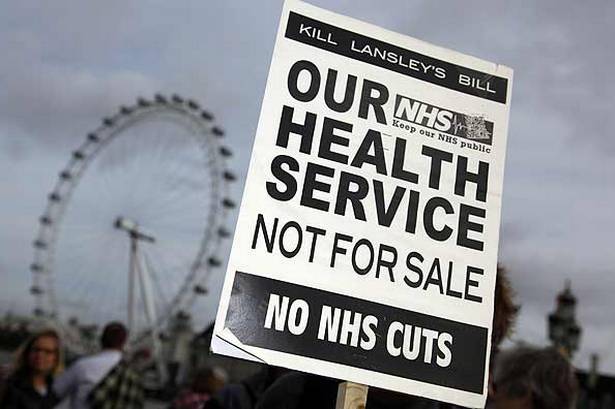
As the Lords and Baronesses of the UK’s parliamentary chamber debated the government’s Health and Social Care bill, it was revealed by the Daily Mirror that 40 of these Peers had financial interests in companies involved in private healthcare. This number, though shocking, was just the tip of the iceberg. Further research revealed the true extent of the financial interests the unelected Peers of the House of Lords had in passing the Health and Social Care bill.
Carrying the Mirror’s research further, we at Social Investigations, went through the Lords’ register of interests with a fine tooth comb. In total, an extraordinary142 Peers were found to have financial interests in companies involved in private healthcare. These interests are, however, not the exclusive domain of a single party, but highlight self-interest that is endemic within every major party of every political persuasion, raising the question: Who are they actually serving?
In total 1 in 4 Conservative Peers were found to have these vested interests. The Labour Party had a total of 1 in 6, a number equalled by the Crossbench Peers, and the Liberal Democrat Peers, the coalition’s willing partners in passing the bill, had a total of 1 in 10 with such interests.
So what of these connections?
The mixture of the Peers’ financial interest and involvement varies. Some MPs have shares in healthcare companies set to benefit from the bill’s passing. Some are chairmen, partners, consultants, or are acting as senior advisers to investment groups funding the private companies, such as private equity firms, ready to swoop.
These interests, although indicative of where their priorities lie, would be less influential if the Peers were prevented from voting when they have a conflict of interest. At local government level, such conflicts come under a ruling of ‘prejudicial interest’, which requires the councillor to leave the room and take no further part in discussions or voting. No such safeguard exists in the House of Lords.
The subject of voting with conflicts of interest was put to the Peers after Social Investigations emailed all 142 with financial interests.
The email stated:
‘It is obvious that with these vested interests there is a conflict of interest and many who have seen this list are quite frankly shocked that this situation exists whereby those with vested interests can and are voting in favour of policies which could benefit those interests through the promotion of the further privatisation of the NHS.’
The response was notable in its silence, except for a single reply from Liberal Democrat Peer Baroness Barker, who ignored the issue of interests and simply stated:
‘Please supply your evidence that any of the people named below…have failed to declare their interests as they are required to do. Please supply your evidence that the individuals named below have furthered their own interests. Please supply as much detail as you have.’
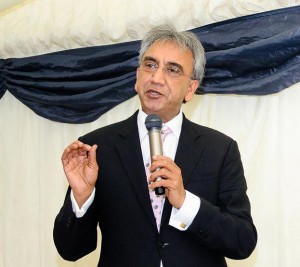 Apparently a list of 142 Peers who have financial connections to private healthcare companies and are taking part in a bill that will hand more opportunities to private healthcare is not ‘evidence’ enough; but of course, by evidence, she means evidence that the Peers are not abiding by the existing rules, which simply require them to declare their interests, but do not prevent them from voting on issues that may directly benefit those interests. There is as of now no mention of preventing these conflicts of interest in the House of Lords reforms currently being put forward by the Liberal Democrat leader Nick Clegg.
Apparently a list of 142 Peers who have financial connections to private healthcare companies and are taking part in a bill that will hand more opportunities to private healthcare is not ‘evidence’ enough; but of course, by evidence, she means evidence that the Peers are not abiding by the existing rules, which simply require them to declare their interests, but do not prevent them from voting on issues that may directly benefit those interests. There is as of now no mention of preventing these conflicts of interest in the House of Lords reforms currently being put forward by the Liberal Democrat leader Nick Clegg.
Take Lord Popat, a nursing and care home tycoon who has given the Conservatives a total of £319,641. The Ugandan-born dad-of-three has amassed an estimated £42million fortune as founder and chief of TLC Group, which provides services for the elderly. Prime Minister Cameron made the businessman a Peer shortly after entering No10 in May 2010. Lord Popat’s donations include a £25,000 gift registered a week after the Conservatives health reforms were unveiled in July last year.
This blatant money for power behaviour is matched by the actions of another Conservative Peer Lord Chadlington, who has been in the House of Lords since 1996. Lord Chadlington is the founder and chairman of a PR and communications company called Huntsworth plc. One arm of the group is Huntsworth Health, which operates globally, and here in the UK. Its website states that the company ‘provides a full continuum of consulting and communications services to the healthcare and well-being industry.’
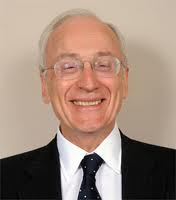 In the same month as the white paper was released, Huntsworth Health acquired healthcare communications agency, ScopeMedical for £4.6m, thus expanding its health division. Lord Chadlington said of the takeover: “We are delighted to announce the acquisition…Healthcare is a major growth area and we are now very well positioned to take advantage of that growth.’
In the same month as the white paper was released, Huntsworth Health acquired healthcare communications agency, ScopeMedical for £4.6m, thus expanding its health division. Lord Chadlington said of the takeover: “We are delighted to announce the acquisition…Healthcare is a major growth area and we are now very well positioned to take advantage of that growth.’
Not only do they have Lord Chadlington as their CEO, but up until last year, they also had Labour Peer Lord Puttnam as a Director, and from 2001-03 Conservative Peer Baroness Cumberlege was one of their non-executive directors. If that’s not enough, they have some finance provided via Liberal Democrat Lord Alliance, who has shares in the company, making four Lords, from three main parties, working for one company.
Huntsworth plc gave £15,500 to the Conservative party in August last year and has given money every year since 2008. Lord Chadlington and his wife have personally given more than £20,000 to the local party since 2007, including a sum of £10,000 for his leadership campaign. All within the rules that make it almost impossible to prove their actions will exclusively benefit his company. This ‘exclusivity’ part of the rules, is an important word, as found out when a complaint was put to the House of Lords Commissioner for Standards about Lord Chadlington, his company and its connections to the government and their Health and Social Care bill.
The response stated: ‘You have not supplied any evidence to suggest that any of Lord Chadlington’s votes in connection with this Bill, were designed to confer exclusive benefit on, as you suggest, Huntsworth plc.’
Why do so many companies ask Lords to sit on their boards, become chairman and advisors if it isn’t to access the highest levels of government and acquire an exclusive benefit?
However, private companies don’t just rely on a vote to get want they want; they want to be where the centre for information is too. The Associate Parliamentary Health Group (APHG), which was launched in November 2001 was set up with the intention to provide: ‘information with balance and impartiality on local as well as national matters, and is recognised as one of the preferred sources of information on health in Parliament.’
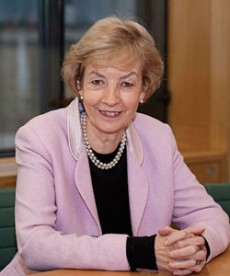 Four key members of the APHG have financial links to companies involved in private healthcare. The Chair of the APGH is Baroness Cumberlege, who runs a company called Cumberlege Connections. Her company is involved in running training programmes for medical staff, but also covers the topic of ‘Politics, Power and Persuasion’, in a tailored two-day programme which includes topics such as: ‘Managing the markets, the challenges of commissioning’, ‘who’s who’, and ‘brokering deals with other independent sector providers’; the latter programme is delivered by the Baroness herself.
Four key members of the APHG have financial links to companies involved in private healthcare. The Chair of the APGH is Baroness Cumberlege, who runs a company called Cumberlege Connections. Her company is involved in running training programmes for medical staff, but also covers the topic of ‘Politics, Power and Persuasion’, in a tailored two-day programme which includes topics such as: ‘Managing the markets, the challenges of commissioning’, ‘who’s who’, and ‘brokering deals with other independent sector providers’; the latter programme is delivered by the Baroness herself.
In 2009, following a complaint from transparency campaigners Spinwatch, the Baroness was forced to admit that she had run her business from the House of Lords until it “took off”, and failed to declare her company’s interests in any debates. The disciplinary action involved nothing more than having to make an apology.
One of the key areas of the Health and Social Care bill involves handing over the purchasing power for services from Primary Care Trusts (PCTs), who were previously in charge of this, to local Commissioning Groups led by Doctors. In order to get these new Groups into a position where they can carry out the complicated duties of commissioning, a collection of ‘Approved Providers’ were formed to be part of a national framework from which the GP groups had to choose from. It is here that private business has already been making money from the reforms. The partnerships are largely made up of private companies, who bid for contracts to develop the new GP groups. Baroness Cumberlege placed her company into one of these Alliances led by management consultancy company PricewaterhouseCoopers, who were bidding for and winning contracts as she debated and voted on the bill, helping it pass into Act.
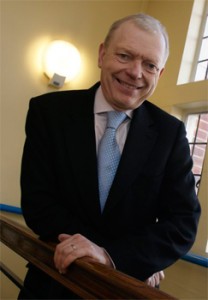 Another member of the APHG Lord Hunt of Kings Heath, acts as the groups’ treasurer and has received payment from Baroness Cumberlege for work as a trainer and consultant. His input makes up one of five Peers and four MPs who have worked for her company. Lord Harris of Haringey who is listed as an APHG advisor, has also been remunerated by Cumberlege Connections for ‘occasional participation in training events.’ In addition, he is a senior adviser to business services giant KPMG, who are one of the ‘approved providers’, winning contracts for the new commissioning groups.
Another member of the APHG Lord Hunt of Kings Heath, acts as the groups’ treasurer and has received payment from Baroness Cumberlege for work as a trainer and consultant. His input makes up one of five Peers and four MPs who have worked for her company. Lord Harris of Haringey who is listed as an APHG advisor, has also been remunerated by Cumberlege Connections for ‘occasional participation in training events.’ In addition, he is a senior adviser to business services giant KPMG, who are one of the ‘approved providers’, winning contracts for the new commissioning groups.
Mark Britnell, head of global finance giant KPMG’s health division and an advisor to Prime Minister David Cameron had announced in a healthcare industry conference in 2010 that the NHS would be shown ‘No mercy.’ Adding: “…and the best time to take advantage of this will be in the next couple of years.” A rather harsh choice of words for someone who was employed by the NHS for over a decade.
Finally, Conservative MP Mark Simmonds, who acts as Co-chair to Baroness Cumberlege on the parliamentary group, is paid £50,000 a year for 10 hours a month as a strategic advisor to Circle Health, the first firm to win control of an NHS hospital. The former shadow minister for health recently had to apologise to the House of Commons, for ‘inadvertently’ failing to declare his interest when talking in favour of the NHS reforms. Circle has connections to Health Secretary and the architect of the Health and Social care bill, Andrew Lansley. Christina Lineen spent two years as an aide to Mr Lansley prior to moving to Circle as head of communications.
 In addition to the leading roles played by these parliamentarian’s, the APGH has a list of external associate members, all private health companies, who attend occasional meetings with the Group. The list, which currently sits at twenty-three members, must pay a subscription fee to be involved. The amount of members allowed is capped at 26 and they become a member on a first come, first serve basis, which according to the manger of the parliamentary group Ella Jackson, is the fairest and ‘most transparent’ way to operate the membership system. That however, is where the transparency ends.
In addition to the leading roles played by these parliamentarian’s, the APGH has a list of external associate members, all private health companies, who attend occasional meetings with the Group. The list, which currently sits at twenty-three members, must pay a subscription fee to be involved. The amount of members allowed is capped at 26 and they become a member on a first come, first serve basis, which according to the manger of the parliamentary group Ella Jackson, is the fairest and ‘most transparent’ way to operate the membership system. That however, is where the transparency ends.
The rules of All-Party Groups demands a record be held of all meetings, and that each Group must keep sufficient records to enable it to prove that the group meets at least twice a year. The APGH according to their manager goes further than this, by ‘audio-recording’ every meeting it holds. The problem is, we the public aren’t allowed to hear these recordings, because the meetings are held under something called ‘Chatham House Rules’.
The Chatham House rule, which doesn’t have to be held in Chatham House to apply, was created back in 1927 and has since been refined in 1992 and 2002, and exists according to the Chatham House website; ‘to allow people to speak as individuals, and to express views that may not be those of their organisations.’ It adds: ‘People usually feel more relaxed if they don’t have to worry about their reputation or the implications if they are publicly quoted.’ This lack of transparency applies to the list of attendees too, where it is forbidden to mention who attended.
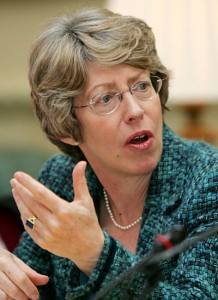 In amongst the list of companies paying their subscription are: Alliance boots, Astrazeneca, and GlaxoSmithKline; who all have Lords and or MPs with financial links to their company. Pharmaceutical giant Astrazeneca has 9 Lords who are financially linked to them, including some who hold shares. GlaxoSmithKline has 17 Lords with shares in its company and Alliance Boots can boast having Lord Blyth as one of its former chairman, and former MP Patricia Hewitt, who took a consultancy job with them 7 months after standing down as an MP.
In amongst the list of companies paying their subscription are: Alliance boots, Astrazeneca, and GlaxoSmithKline; who all have Lords and or MPs with financial links to their company. Pharmaceutical giant Astrazeneca has 9 Lords who are financially linked to them, including some who hold shares. GlaxoSmithKline has 17 Lords with shares in its company and Alliance Boots can boast having Lord Blyth as one of its former chairman, and former MP Patricia Hewitt, who took a consultancy job with them 7 months after standing down as an MP.
Ms Jackson of APGH explained: ‘It’s vital that parliamentarians and other speakers are able to speak freely in an open and frank exchange, without fear of having their thoughts reported out of context.’ What could both Peers and MPs with private healthcare interests and private healthcare companies be talking about that requires such secrecy? Why invoke a rule created over 80-years ago that prevents members of the public knowing who was in attendance and what was said?
The Health and Social care bill is now an Act; the companies who have lobbied for the NHS to be privatised have taken one giant leap into its eventual dismantling. The openness, with which money is given to politicians through donations, highlights an assumption that such behaviour is acceptable. Baroness Barker’s response doesn’t question that 142 Lords having financial connections to private healthcare as a problem; but merely points out the technical rules have been followed.
Our politicians sit on the boards, they own the companies, they are the directors, and they are indefinable from one another. The Labour party has promised to repeal the bill, but as election time comes, will those Labour Lords and MPs with interests in private healthcare, work behind the scenes to water down any changes? What of the future? So long as Lords and MPs are allowed to vote on bills that are directly linked to companies they have a financial interest in, then they will always be open to representing the corporations for whom they work. They are meant to be public servants, yet the evidence points towards them serving another element of society, one that is hidden behind corporate confidentially and ‘Chatham House’ rules.
Our democracy is under threat and our parliamentarians are all in this together, and at the very least should be barred from voting when a prejudicial conflict of interest appears. Until then, such behaviour will continue and unelected corporations will continue to hold the reins of power.
Sign the petition below to try and stop the Lords from being allowed to vote with conflicts of interest http://epetitions.direct.gov.
Please also check out this excellent MediaLens alert on the subject.
11 Comments
AngryVoter
AnotherAngryVoter
To be honest if you have vested interests then you should NOT BE PERMITTED TO VOTE.
As 99.9% of the Mps and peers etc all have vested interests in all and sundry – Their only aim being to line their own already full coffers their eton educated Mumsys and Dadsys gave them – They should all not be allowed to do anything.
transparecy they say – Garbage!
Cameron pleaded for our votes and he promised us that he would NOt trash the NHS (he promised this to claire rayner who I pray is now haunting him)
He promised to look after the old the young and the sick – All of whom he has targeted with his hatred and bile in the papers vilifying disabled people (DLA fraud rate is still at 0.5% yet they waste money on PIP to givemoney to friends and ATOS for no reason other than to throw disabled people to the dogs!)
They make ESA so stringent that dying people cant get it – To pass an ESA test – You just hafta be breathing (and even that isnt compulsory) it doesnt make you able to work – Just makes you die faster as you have no money to live.
I am sure Cameron is happy we wil die faster.
He is killing this country. That manwho said he understood disability cos of Ivan – What a crock – We dont have nannies or millons to draw on. The same man whose own father was disabled and yet he HATES disabled peple and couldnt give a rats a$$ whether these waste of space people ive or die (yes cameron we know what you think of us)
Clegg is nothing – Liberalism is nothing now – Clegg ruined his whole party as I would never be able to trust them when all their own policies mean nothing in the rush for power (which they dont have Cameron holds the keys to that and Clegg kisses his butt)
Everything he promised in Manifeso he didnt do – In this instance he should be sacked. Or what use isa manifeso? Its all lies. Cameron is all lies behind a smarmy evil face.
I would so love to see you live cameron for a year on that measly £60 odd quid a week (when gas elec and water is £160 a month alone) cameron would spend more than that on just luncheon and moet
I am sickened to be a brit now – Because i used to be proud of the humanity of this country we helped our sick. Now – We attack our sick, and treat them like scum when the only scum around – IS MAINLY IN THE CONSERVATIVE PARTY
We have to get them out and pray that Labour or something (new party = Spartacus party) and then and only then will the disabled people of the Uk stand a chance for a decent life without being attacked left right and centre for just being ill!
I didnt choose to get sick – I didnt do this to me – It just happened against my will.
I want to be healthy I really do
I wish I were – I might not feel so hated them thanks to Cameron and his pals in the papers
I am ashamed to be British – the mother country – No mother would treat her children like this so no longer are we the mother country – Now this country are just going downhill fast, bar the 1% who own all the money and hide it away so they dont pay tax whilst attacking every pleb beneath their ever stomping feet
Absolutely BRILLIANT article Andrew, thanks so much for being so persistent, precise and providing so much detail.
I’d no idea our so-called democracy was so similar to the USA in that our elected politicians act either in their own self-interests or for their corporate chums who will donate cash to Party funds, etc in return for OUR politicians passing laws regardless of whether or not it’s in the interests of the Country or even the electorate.
Clearly the UK, just like its “special relationship” friend the USA, have abandoned democracy in favour of a corruptocracy in which the rich and business interests dictate Party policy regardless of Party, their manifesto or even the electorate. It’s so sad.
I’m now ‘following’ you via twitter Andrew. Thanks again.
There is a lot of anger out there, but the Labour party are as immersed in vested interests as the Conservatives. There is a window to a target a party, and that is often when they are in opposition. If Labour members want their party to be a strong opposition, then they have to be different. They have almost as much vested interest in private health companies as the Conservatives, they played friendly with Murdoch, they took cash for questions, they continued privatisation. The public are crying out for a genuinely decent party that takes on the giant and increasing power of the corporations. If it doesn’t happen, then the balance of power will likely become worse, and the only choice may be genuine revolution.
Upset Londoner
Excellent article Mr Robertson.
The conflict of interest highlighted in this article shows us that democracy in the UK is nothing put a sham and the voting system and politics needs an entire overhaul. It is clear that health professionals who in line with the public want to maintain fee health care should be running the country. Cameron and Lansley’s privatised health service reveals these conflicted compromised MPs do not seem to understand the idea of corruption and immorality in public decision making. None of these parties is fit to be in office. The Tories and their Lib Dem poodles don’t have the right to push these policies through given the method of election and Labour’s defeat showed that the public was sick of it doing the same while it was in office. None are fit for purpose. Indeed under the Supply of Goods and Services Act, we would be entitled to restitution and damages for their lack of services to society and their complete lack of duty of care. As Mr Robertston says: “Our politicians sit on the boards, they own the companies, they are the directors, and they are indefinable from one another.” Please could the country’s honourable citizens remove power from these despotic greedy people sometime soon. Corporate media, politicians, PR and company heads need not apply.
CJ
Is it not time for the Crown Prosecution Service to “dust off” their rules on the common law offence of MISCONDUCT IN PUBLIC OFFICE which can carry life imprisonment. ( see: http://www.cps.gov.uk/legal/l_to_o/misconduct_in_public_office/ )
According to the CPS the offence is committed when:
a public officer acting as such
wilfully neglects to perform his duty and/or wilfully misconducts himself
to such a degree as to amount to an abuse of the public’s trust in the office holder
without reasonable excuse or justification.
A reminder of the penalties before each vote in Parliament – Lords or Commons – might shake the corruption out of the system.
If it is felt this is a bit harsh then people should realise that the impact of the changes falls on those least able to protect themselves :
1. The sick and disabled ( obviously)
2. The poor
3. The aged
4. Carers – mainly women.
[…] another summary of the evidence: Special Report | Selling the NHS: how parliament and the healthcare industry got cosy Categorized under: Health / NHS. Tagged with: no […]
Nice article by Andrew Robertson. Like so many other readers, I too am shocked by this blatant attack on the nature of ‘non-aligned’ political processes. Sometimes it feels like we Brits have swallowed the whole idea that because we have ‘the Mother of all Parliaments’ (which is bollocks anyway) we can kick back and enjoy democracy. The reality – for me at least – is that every right had a fight, from women’s right to vote through to the abolition of the poll tax. We are the masters of our own destiny and Mr Robertson has done a great job in blowing part of the roof off the idea that we live in an impartial democracy. Arab Spring come rain on little Britain!
jane stead
Can you send this to The Guardian? And all the other papers. One might pick it up. And the BBC.
If nobody does, we all know there’s a reason for that worth investigating too…..
This information has been sent to the Guardian, who linked to the blog list in one of their stories, the BBC, et al…while the Lords were debating on the Health and Social Care bill. Unfortunately, nobody ran with the story for reasons I do not know.
One fifth of Lords who voted on Health Bill had conflicted interests: TBIJ
[…] those voting on the Health Bill had a potential conflict of interest. The research was published on Ceasefire magazine’s […]


How can this be allowed to happen and more importantly, why isn’t this all over the mainstream media? They should be exposing this kind of conflict of interest. Well done to Social Investigations for highlighting this issue. Now, how do we get the media to do their jobs instead of simply reporting what the government puts out in press releases?!